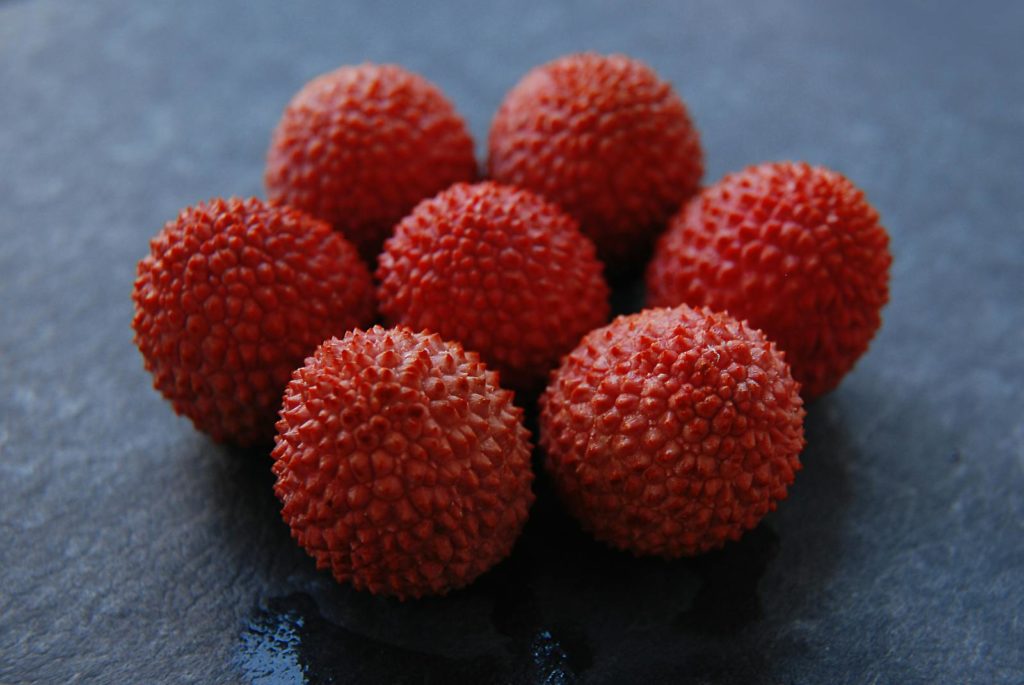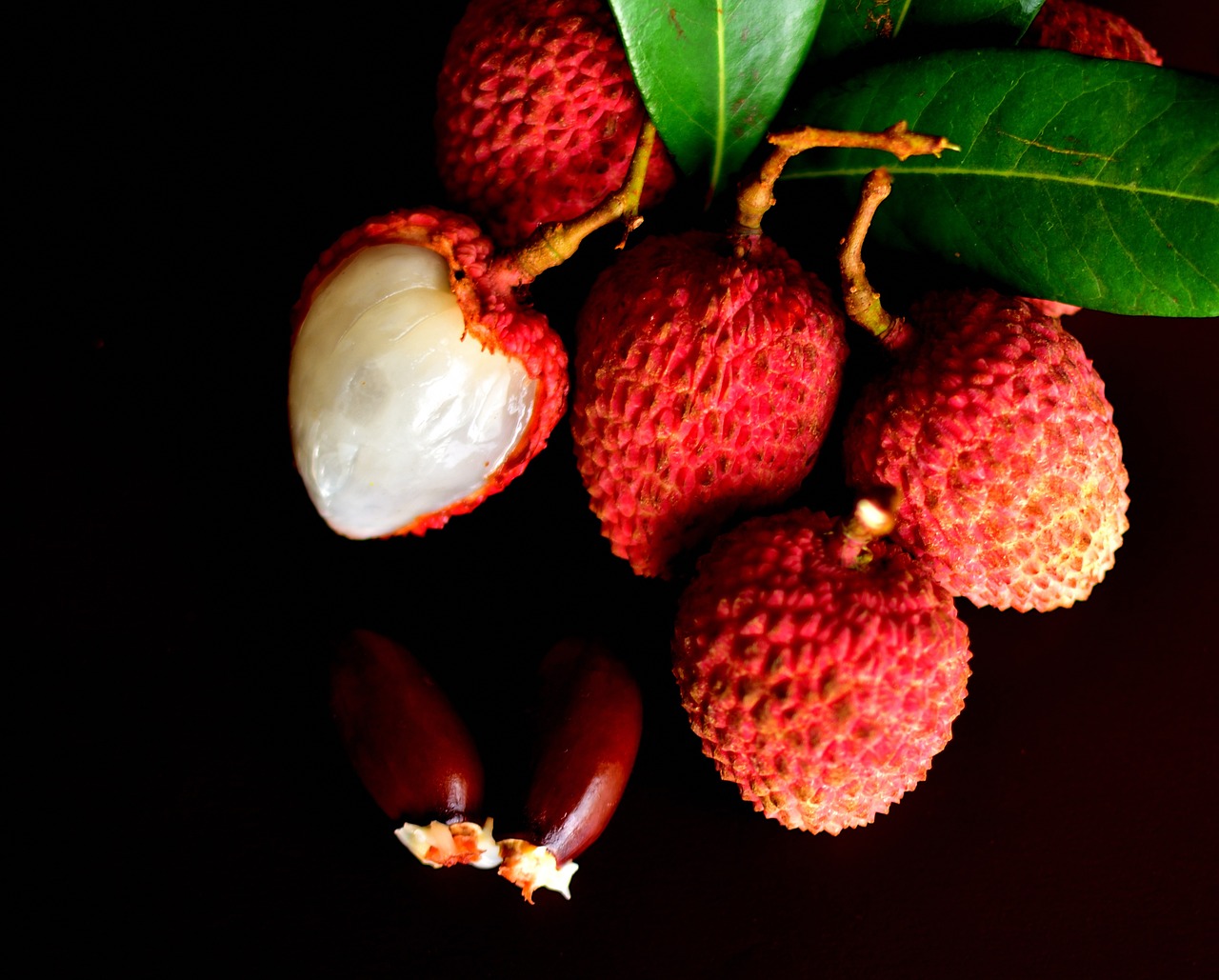Litchi, also known as lychee, is a tropical fruit cherished for its sweet, floral flavor and juicy, translucent flesh. Native to Southeast Asia, this small, red-skinned fruit is not only a delicious treat but also a powerhouse of nutrients. Whether you’re enjoying it fresh, dried, or as part of a dessert, litchi offers a range of health benefits.
However, like any food, it’s important to understand its benefits, how to enjoy it, and any potential contraindications.
Let’s dive into the world of litchi!
What is Litchi?
Litchi (Litchi chinensis) is a tropical fruit that grows on evergreen trees. It has a rough, red outer skin that’s easily peeled to reveal a soft, juicy, and translucent white flesh. The fruit is typically eaten fresh but can also be found canned, dried, or in juice form. Litchis are in season during the summer months and are a popular ingredient in desserts, beverages, and savory dishes.
Nutritional Profile of Litchi
Litchis are low in calories but rich in essential vitamins, minerals, and antioxidants. A 100-gram serving of fresh litchi provides:
- Vitamin C: Boosts immunity and skin health.
- Copper: Supports red blood cell production and immune function.
- Potassium: Helps regulate blood pressure and heart health.
- Fiber: Aids digestion and promotes gut health.
- Antioxidants: Protect cells from damage and reduce inflammation.
- B Vitamins: Support energy metabolism and brain function.
7 Benefits of Litchi
- Boosts Immune System
Litchis are an excellent source of vitamin C, which strengthens the immune system and helps the body fight off infections like colds and flu. - Supports Heart Health
The potassium and copper in litchis help regulate blood pressure and improve circulation, reducing the risk of heart disease. - Aids Digestion
Litchis are rich in dietary fiber, which supports healthy digestion, prevents constipation, and promotes a balanced gut microbiome. - Promotes Healthy Skin
The antioxidants and vitamin C in litchis help combat free radicals, reduce signs of aging, and promote collagen production for firmer, more radiant skin. - May Help with Weight Management
Low in calories and high in water content, litchis are a great addition to a weight-loss diet. The fiber keeps you feeling full longer, reducing the likelihood of overeating. - Hydrates the Body
With a high water content, litchis help keep you hydrated, especially during hot weather or after physical activity. - Supports Brain Health
Litchis contain B vitamins and antioxidants that are essential for brain health. They may help improve cognitive function and reduce the risk of neurodegenerative diseases like Alzheimer’s.
How to Enjoy Litchi
Litchis are incredibly versatile and can be enjoyed in many ways. Here are some recommendations:
- Fresh and Simple
Peel the outer skin, remove the seed, and enjoy the juicy flesh as a refreshing snack. - Desserts
Add litchis to fruit salads, ice creams, sorbets, or puddings for a burst of sweetness and flavor. - Beverages
Blend litchis into smoothies, juices, or cocktails for a tropical twist. - Savory Dishes
Incorporate litchis into savory dishes like salads, stir-fries, or as a garnish for grilled meats and seafood. - Dried Litchis
Enjoy dried litchis as a convenient and portable snack. - Canned Litchis
Use canned litchis in desserts or as a topping for yogurt and cereals.
Potential Contraindications
While litchis are generally safe and healthy for most people, there are a few considerations to keep in mind:
- Allergies
Some individuals may be allergic to litchis. Symptoms can include itching, swelling, or difficulty breathing. If you experience any adverse reactions, discontinue use and seek medical advice. - Blood Sugar Levels
Litchis have a high glycemic index, which means they can cause a rapid spike in blood sugar levels. People with diabetes should consume litchis in moderation and monitor their blood sugar levels. - Toxicity in Unripe Litchis
Unripe litchis contain a toxin called hypoglycin A, which can cause hypoglycemia (low blood sugar) and encephalopathy (brain disease) in severe cases. Always ensure that litchis are fully ripe before consumption. - Pregnancy and Breastfeeding
While litchis are generally safe during pregnancy and breastfeeding, it’s best to consume them in moderation and consult a healthcare provider if you have any concerns.

Litchi is a nutrient-packed tropical fruit that offers a wide range of health benefits, from boosting immunity and supporting heart health to promoting healthy skin and aiding digestion. Its sweet, floral flavor and versatility make it a delightful addition to both sweet and savory dishes. However, it’s important to be mindful of potential contraindications, especially if you have specific health conditions. By incorporating litchi into your diet in moderation, you can enjoy its many benefits while staying healthy and vibrant.
Have you tried litchi?
Share your favorite ways to enjoy this exotic fruit in the comments below! 🌸

